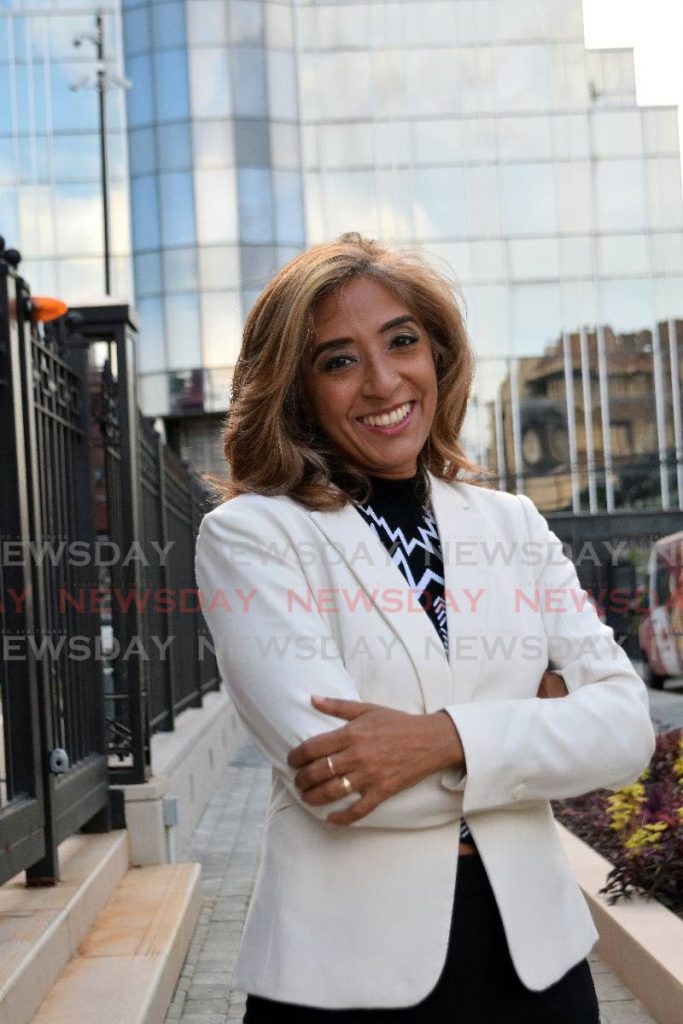Danger in the making

DR GABRIELLE JAMELA HOSEIN
IF THERE was ever a time that the centre seemed unable to hold, it is now.
The Police Service Commission has fallen apart, pulling the Prime Minister, the AG, and the Office of the President into its implosion. The Opposition has launched accusations of interfering political whispers, and we are left to be amazed that basic processes related to state administration could result in such spectacular failure. And the lawsuits, which feature a “who’s who” of lawyers, some who seem to love headlines, are simply adding to costs to be borne by impoverished taxpayers.
Still, public reporting of the messiness has been instrumental in highlighting the importance of decision-making and transparency by chairpersons of commissions and boards, and the accountability that must be necessarily insisted upon by other members. We’ve gained some insight into the tensions and debates that were taking place, commission members’ refusal to acquiesce without sufficient information or agreement, and their repugnance at a high-handed leadership style of commission governance.
Weeks ago, we were having another debate about boards in the face of the NGC fiasco and the agreement by Minister Imbert to grant an indemnity to the board of directors of the National Gas Company. The board misspent hundreds of millions of dollars to keep Atlantic LNG Train 1 operational. There’s now a legal debate about whether the indemnity could hold in court, the extent to which it raises red flags about poor judgment and what, in the end, will be anyone’s accountability for the risks taken with our shrinking financial resources.
Ordinary citizens would be just as interested in the details of this imbroglio for better understanding how the inner workings of boards, usually far from the public eye even in relation to public business, provide immense insight regarding who raises alarms, when decisions are questioned, whether political influence is in the mix, what role political patronage plays, and how public interest is or isn’t protected.
When the minister comes to tax you at the cash register or in your home, think about the $440 million lost with impunity. We can expect no action against the board. This is a government that appointed Malcolm Jones to the Standing Cabinet Committee on Energy during (and before dropping) the Petrotrin case against him to recover nearly $2 billion.
I don’t know how else to say it. While you are struggling to buy rice, flour and cheese in this pandemic, while your savings are depleted, intolerable amounts of public funds are wasted by ruling elites. Where do the cuts then happen? To scholarships for university students and GATE funding for graduate degrees. To stable jobs in the public sector which are increasingly becoming reduced to short-term contracts and insecure labour. To salaries for nurses who have not had a raise since 2013.
Over our history, boards and commissions whose responsibility is to protect public interest provide us with endless case studies of problematic processes and decision-making, ministerial influence, necessary whistle-blowing, and money lost to lawyers and legal opinions while the country seethes. Indeed, a few weeks ago, discussion at the Caribbean Corporate Governance Institute forum highlighted boards of state enterprises as well-known mechanisms for dispensing political patronage.
The question of board appointments also came up in relation to the TT Revenue Authority (TTRA). In the Government’s plan, the Finance Minister appoints six of nine members, and it’s claimed that the process will be fair and, by implication, non-partisan. Scepticism runs rampant, understandably. Even when board members are not directly appointed by a minister, ministerial priorities, warnings, interpretations and whims waft through the considerations taken into account by boards and commissions depending on staffing and budgetary arrangements, and the issues and relationships at stake. That’s just a common reality of our political system, and it ultimately costs us as a nation in integrity, civility and money.
When things fall apart and the centre cannot hold, mere anarchy is loosed upon the world. This leads to the last point I want to make. Governing elites may not see, but the trust of a wearied public has worn thin. Minister Imbert can be infamously quoted as saying, “They haven’t rioted yet.” However, where public institutions, representatives, boards and commissions fail to keep trust, provide value for money, and be transparent, people lose faith.
Be warned. Bringing its own dangers, such disgust can be convincingly harnessed by those mobilising on the ground as a Trump-style strongman, as desperate and dissatisfied voters see the potholes and the hunger, scandals and waste.
Diary of a mothering worker
Entry 435
motheringworker@gmail.com

Comments
"Danger in the making"